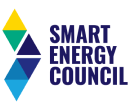Two types of electricity can be used to charge electric vehicles: alternating current (AC) and direct current (DC). But what is the difference between AC and DC EV chargers?
With the growing popularity of electric vehicles, we’ve heard this question a lot recently. The simple answer is that DC EV charging is fast and AC charging is slower.
However, the difference between AC and DC EV chargers can be complicated. We’ve made this guide so you can easily understand the differences and know how an AC or DC EV charger works with an electric vehicle.
Quick Summary:
- Power drawn from the grid is always AC (alternating current)
- Energy stored in batteries is always DC (direct current)
- Whether your electric vehicle uses an AC or DC EV charger, the battery can only store DC power
- The difference between AC and DC EV chargers is whether the AC power gets converted inside or outside the vehicle
- Electric vehicles have a built-in converter (onboard charger) that changes AC to DC power
- DC charging stations bypass the need for AC to be converted to DC in the onboard charger, resulting in faster charger
- AC charging stations are the most common, cost-effective, and readily available but they are slower than DC charging
- DC charging is not as readily available, requires complex equipment and installation, and is more expensive, but is the fastest charging option
What Is AC Charging?
AC refers to alternating current. It is drawn from the grid and is the most common method. When using an AC charging station, the power still needs to be converted to DC to be stored in your electric vehicle’s battery.
How AC Charging Works
Since the power drawn from the grid is AC, it needs to be converted into DC to be stored in the battery.
Electric vehicles have a built-in converter, known as an onboard charger, that converts AC power to DC power. This conversion allows the DC power to be stored in the EV’s battery. However, this conversion process takes time, meaning it will take several hours to overnight to fully charge your electric vehicle.
What AC Charging Is Suitable For
Most EV charging stations you’ll come across will use AC charging. AC charging is best suited to charging your electric vehicle at home or in workplaces where the cars have time to charge.
Although AC charging is slower than DC charging, home applications allow you to plug your car in for several hours or overnight to charge. AC charging is also well suited to work charging stations again where the cars are returned to base at night or for extended periods during the day.
What Is DC Charging?
DC chargers have a converter built inside the charger. This allows power to feed directly from the charger to the car’s battery, eliminating the need for an onboard charger to convert it. DC chargers are faster and more efficient, allowing for rapid charging compared to AC chargers.
How DC Charging Works
With DC charging, the conversion from AC to DC power happens in the charging station itself rather than in the vehicle. This allows DC power to flow right from the charging station into the battery without the need for a conversion.
What DC Charging Is Suitable For
DC charging is better suited to areas that require faster recharging, such as public charging stations or near highways. For travellers who have limited time to recharge, DC charging is the best option or for fleet cars with high constant usage.
Depending on the power output of the station’s charger and your vehicle’s charging capacity, you can be back on the road within an hour in most cases.
You May Also Like: 10 Tips for a Stress-Free EV Road Trip
Differences Between AC vs DC EV Chargers
| Feature | AC | DC |
|---|---|---|
| Speed of Charging | Slow | Fast |
| Power Requirement | Limited power needed | Requires higher power supply |
| Installation | Fairly straightforward | Complex |
| Availability | Readily available | Only available at certain locations |
| Applications | Best for home charging stations or general car park charging installations | Best suited to highway charging stations, and fast charging locations Truck/Bus and fleet situations |
| Cost | More affordable than DC | Expensive |
#1 Difference Between AC and DC EV Charger: Speed of Charging
Perhaps the biggest difference between AC and DC EV chargers is the charging speed. Since a DC charger has a converter incorporated into it, the power comes out of the DC charging station, skips the vehicle’s onboard charger, and enters straight into the battery.
By completing the conversion from AC to DC within the charging station, the entire process is significantly faster. This makes the charging process more efficient than AC charging and better suited to high-speed charging.
#2 Difference Between AC and DC EV Charger: Power Requirement
Limited power is needed for AC charging because it uses the onboard charger to convert AC to DC power.
DC charging requires a higher power supply since the conversion from AC to DC happens within the charging station. Because the converter is incorporated inside the charger station, DC chargers are bigger and more complex.
#3 Difference Between AC and DC EV Charger: Installation
Another difference between an AC vs DC EV charger is the installation process. An AC charging station is more straightforward to install.
DC charging stations require a more complex installation process. They also require complex parts, a high power grid connection, and take up more space due to how bulky they are. All of these factors result in a more complicated installation process and higher installation costs.
#4 Difference Between AC and DC EV Charger: Availability
For AC vs DC charger availability, AC is the winner.
This is due to the lower power supply requirements and the ability to have these installed in many locations due to their physical size and cost. AC charging is suitable for most locations and situations where time is not a factor in charging.
Because they require complex equipment, more involved installation, and a high power connection to the grid, DC EV chargers are not readily available.
#5 Difference Between AC and DC EV Charger: Applications
Here’s a quick glance at AC vs DC EV charger applications.
AC charger applications:
- Well suited to home use since they are less bulky and easier to install
- Can be used for mobile applications
- Can be found at public EV charging stations in office and shopping center areas.
DC charger applications:
- Not recommended for constant use (this is debated but some experts say DC chargers can cause wear and tear on your EV’s battery)
- Commonly found along highways or at service stations/ major parking hubs
- Not recommended for home use
#6 Difference Between AC and DC EV Charger: Cost
For AC vs DC EV charger cost, AC is the clear winner. DC chargers are significantly pricer due to higher grid connection costs and installation costs. An AC home charging station is easier to install and the most cost-effective option.
Which One Do I Need? AC or DC EV Charger
Both AC and DC EV chargers have their pros and cons. AC chargers are easier to install, more cost effective, and may be easier on your electric vehicle’s battery.
DC chargers are bulkier, require expensive equipment, and need a high-voltage connection to the grid. However, DC chargers are ideal for situations where you need to recharge your vehicle’s battery as quickly as possible.
If you need help choosing between an AC or DC EV charger or have more questions, we’re here to help. As Perth’s Leading EV Charging Station Specialists, we offer turnkey EV charging installation, supplies, and services. Contact us today for a free quote.






